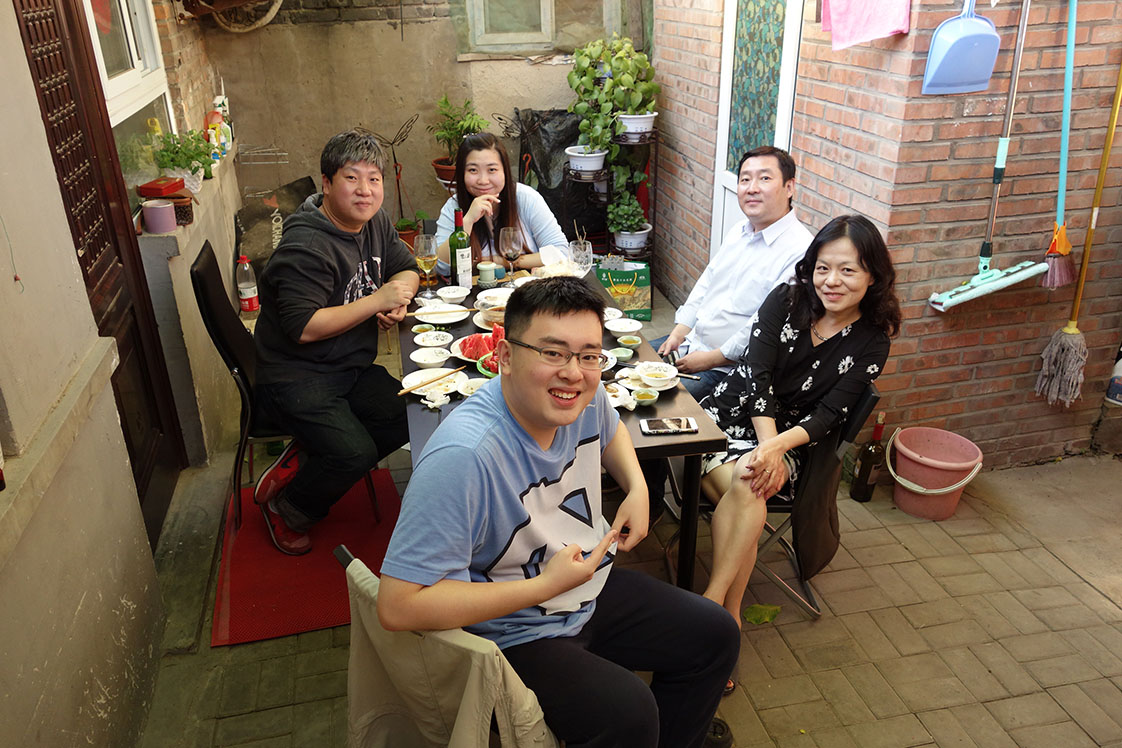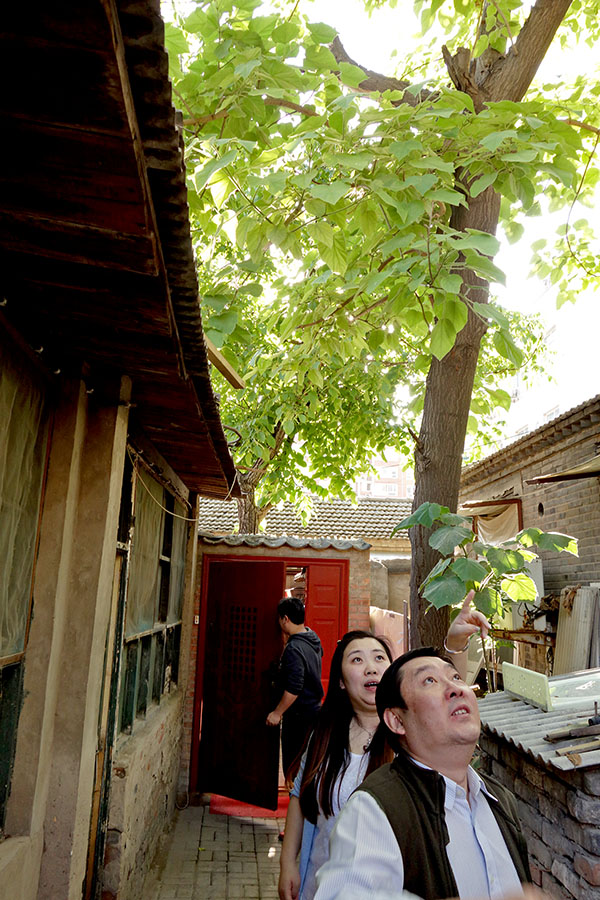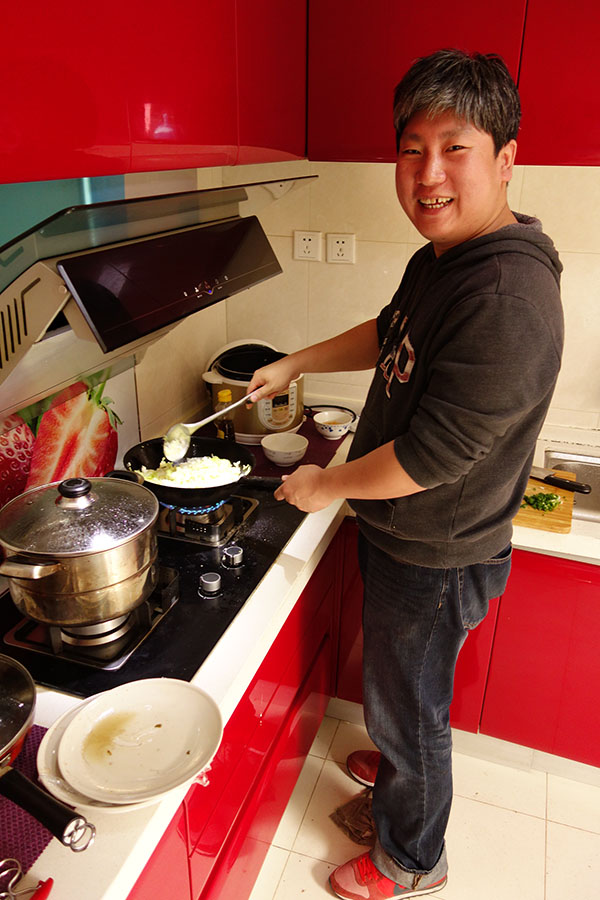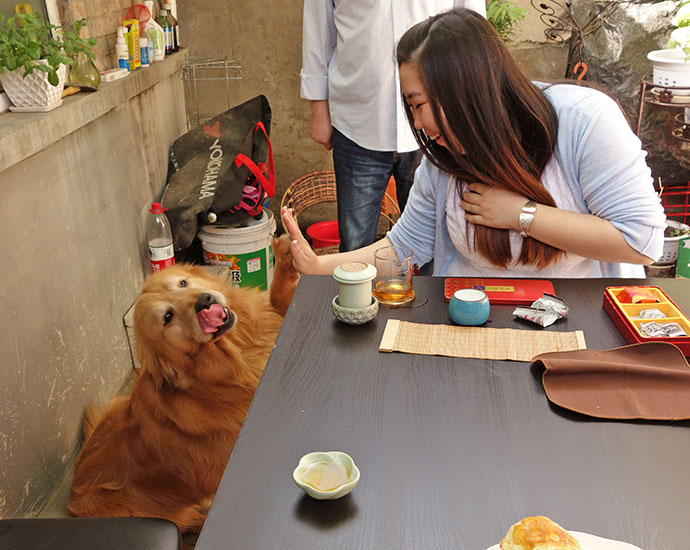
Beneath the spreading leaves of a bent old walnut tree nestles the modest, single-story “hutong” courtyard home of master chef Zhao Jin, 33; his jolly wife, Xiao Xiao; and their roly-poly golden retriever, Zai Zai.

In a tiny but delightful courtyard I was served a sumptuous four-course feast, as we sat beneath the tree’s cooling branches, remarking on the splendid weather and sharing a memorable repast of eggplant, fried rice, Chinese vegetables, and indescribable meat dishes of fish, pork and chicken.
Our dinner group consisted of Professor Chen Kai, her husband, Mr. Liu, a Beijing TV censor; and their broad-shouldered 17-year-old son, Coco (Frank), who, later this summer, will be attending the UNC J-School’s high school sports journalism camp.
Frank, a huge Tar Heel fan, makes me feel welcome by wearing a UNC T-shirt.
Meeting us out of the bustling street, Xiao Xiao had led us through a gate that entered into another world – a maze of quiet, shady, narrow, twisting alleyways no wider than two people passing shoulder to shoulder. The place felt medieval, ancient and thoroughly untouched by the glitz and hustle of “New China.”
A marked contrast to the car-centric Beijing, the hutongs are walkable, personal and humane — built on what sociologists call “the human scale.” When you are there, you feel as if people still matter.

It’s a scene and experience I bet few tourists get to have: an intimate view into authentic old Beijing — where the government is determined to bulldoze the the ancient neighborhoods in the view that they are too shabby.
But chef Zhao and wife Xiao Xiao insist they have no desire to be moved to some shiny new apartment tower.
“This structure is better than the high rise,” Xiao Xiao tells us. “It’s cool in the summer and warm in the winter.”
Indeed, this hutong home has been in the Zhao family for three generations. And like many older homes, the architectural style has “grown like Topsy,” — a bathroom house on the left side of the courtyard, the kitchen house on the other side, and facing the entrance alley under the big walnut is the main quarters: a tiny living room flanked by two small bedrooms, one for the Zhaos and one for the parents, as is the custom here.
How old are the parents? I ask.
“Fifty six” I am told.
Good grief, thinks the 70-year-old visitor.

After a long and languorous meal, during which time I had to try and explain the “Trump effect” (the Chinese think he’s a loose cannon too), we said farewell and strolled through the tree-lined lanes, watching through open doors leading to other small courtyards as neighbors spoke to each other softly.
And it then dawned on me that I had at last found that elusive sense of “community” I’ve sought for so long in China. They have a term for it: “defang gan.” A sense of place.
As we left, the chef’s wife asked me, “How do you like it?”
I replied truthfully, “I could live here.”

